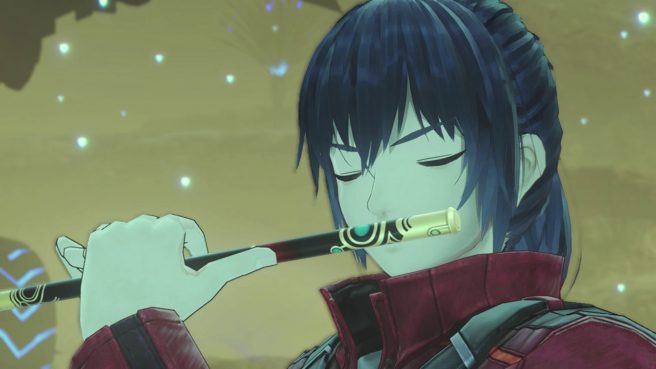Xenoblade 3 devs on the more serious story and reason for 10-year life span plot
Nintendo and Monolith Soft have discussed the more serious story of Xenoblade Chronicles 3 and having the 10-year life span as a major plot point.
Monolith Soft senior director and chief creative officer Tetsuya Takahashi, the studio’s director and producer Koh Kojima, and Nintendo director and producer Genki Yokota weighed in. Kojima actually initially felt that Takakhashi ” was deliberately trying to remove the sense of ‘Xenoblade-ness’ of the series” because of how serious the world is and having a different design. However, through “trial and error”, the team “found a good balance” and captured the series’ essence.
Regarding the 10-year life span, Takahashi “wondered how our perception of life would change if our lifetimes were shorter.” Explaining things further, he noted that “the most influential period for something like my outlook on life was between the ages of 10 and 20, the years when people are most impressionable.”
Here’s the full excerpt with Takahashi, Kojima, and Yokota:
Yokota-san, how did you feel when you first heard about this storyline?
Yokota: Well, I wanted to know how this story would unfold as soon as possible, and I really wanted to move forward with development.
Already? At the proposal phase?
Yokota: Yes. Having the first and second entries as the background, the proposal had the main protagonists divided between two rival nations, initially fighting each other, but then uniting… I thought, “The core theme is solid.” Of course, there were challenges at the same time. (Laughs)
Kojima: Yes, I agree. At first, I thought it didn’t feel like Xenoblade Chronicles at all… I think Takahashi-san was deliberately trying to remove the sense of “Xenoblade-ness” of the series. The stories for the first and second games were completely different, but there was this sense of “Xenoblade-ness” that was common to both of them. I didn’t feel that at all at the initial proposal stage. And the reason for that is because this game’s world is very serious. That is the world that Takahashi-san wanted to depict in this title, but I was concerned about whether it would be acceptable to deliver it to players of previous games in the series, for what it is. The design this time was also different from the previous games in the series. But after a lot of trial and error, we found a good balance, and in the end, I think we were able to create this sense of “Xenoblade-ness.”
Indeed, the story’s introduction shows that people are born to fight, and with a lifespan of only 10 years…and I got a sense of the theme’s seriousness. What was the reason for setting this 10-year life span?
Takahashi: We humans have a life span of 70 to 80 years, and for some people, 90 years or more. But I have wondered how our perception of life would change if our lifetimes were shorter. So, if I simply set the life span to 10 years, I thought about which decade of life I should choose. Looking back on my own experience, I think that the formative years for my personality were between the ages of around 0 to 10, but I also think that the most influential period for something like my outlook on life was between the ages of 10 and 20, the years when people are most impressionable. It seems to me that, while they are both 10 years in length, it was a vulnerable period when I was exposed to many things, took on challenges, and created things as well, and my values and ways of thinking changed drastically. That is why I set the main characters to this period in their lives.
I see. So that’s why the soldiers from the two nations are all so young.
Takahashi: I also wanted to convey to young generations nowadays, through my story, that they can create their own path however they want and that they should not give up on their dreams and goals.
Yokota: We had a great deal of discussion in the beginning about why to have a 10-year life span.
Although the seriousness was in full swing from the beginning, I remember hearing the thoughts Takahashi-san just mentioned, and I was in complete agreement. Doing so would surely bring out that sense of Xenoblade-ness, and I thought that I wanted to stay the course with this storyline.
Takahashi: The first title is kind of like a straight-A student for me. The second one is not quite a straight-A student, but it has a much brighter and more lighthearted start… For the third title, I wanted to stop being a goody two-shoes. It was a challenge when thinking about what kind of response I would get from people who had played the first and second titles, but one of this title’s themes was “finding your new self and a new path toward the future,” so I knew that I could not go back to the past or do the same thing again.
Kojima: By listening to Takahashi-san’s thoughts in detail, I decided to do my best to express what he wanted to convey.
